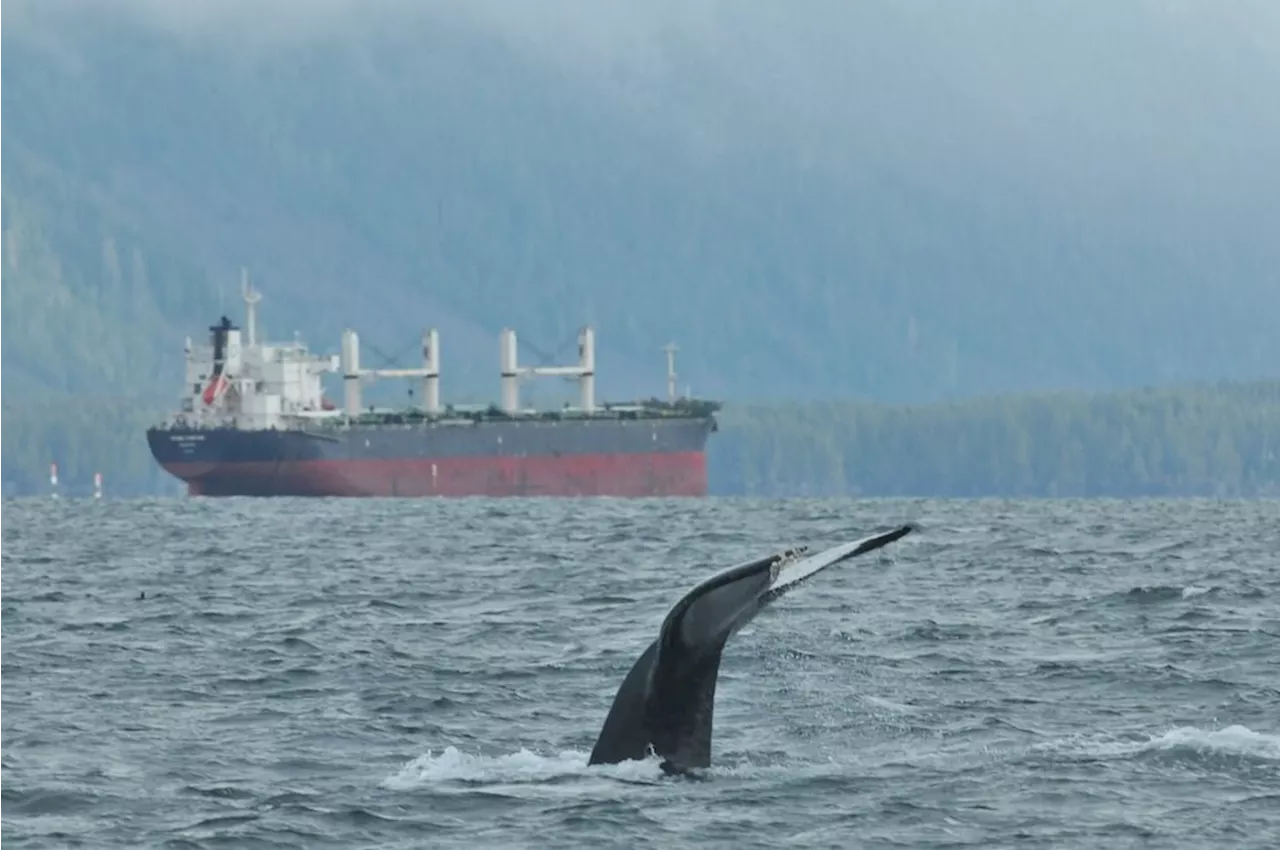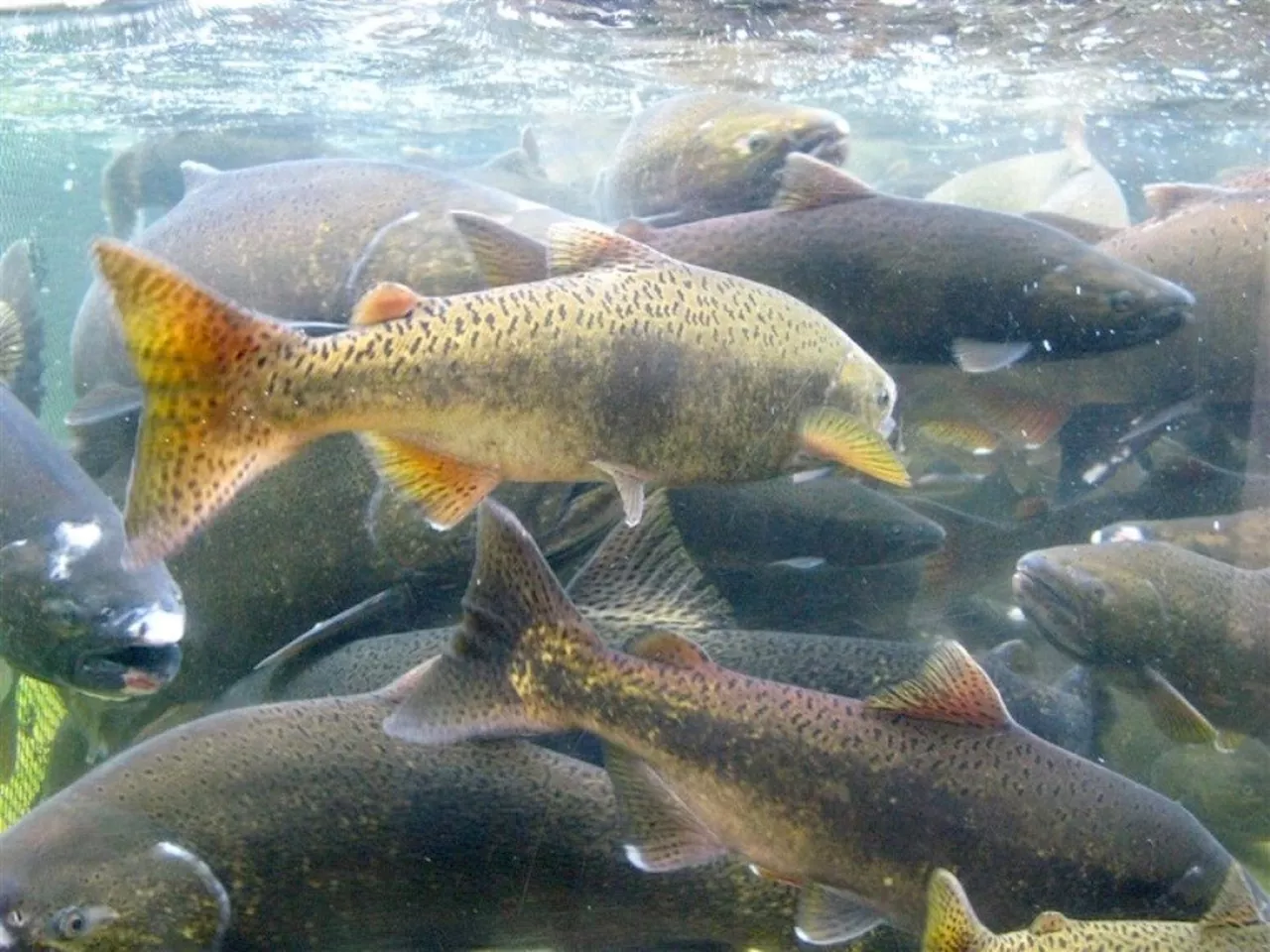A study led by researchers at the University of British Columbia has found that catch-and-release sportfishing practices can cause significant injuries to salmon, leading to mortality rates as high as 40 percent. However, the research also suggests that altering fishing practices, such as using smaller hooks and handling fish less, can improve survival rates.
VANCOUVER — A study has found catch-and-release sportfishing practices that leave salmon with injuries, particularly to their eyes, cause higher mortality than earlier research suggested.
"You can make those decisions as an angler, you know, make sure that when you are releasing, you're doing it the best way possible," said Hinch, associate dean and professor in the university's department of forest and conservation science. The research, which involved tagging and tracking more than 1,500 salmon off B.C.'s coast, found injuries to eyes, fins and scales reduced survival rates for chinook by 15 to 20 per cent within 10 days of release."So could be as high as 40 per cent mortality, depending on the context, depending on how the fish was injured," Hinch said in an interview.
The study found a "strong size effect" on survival, with smaller coho and chinook both suffering higher mortality rates than larger fish. Every one-centimetre decrease in length was associated with a six per cent increase in coho mortality about three days after release. "Both chinook and coho, when those nets are used to bring them out of the water, into the boat, they still get their fins damaged. Their fins split, regardless of what the webbing material is made of," he said. "And we showed pretty clearly that when you start damaging the fins ... the poorer the survival outcomes were."
Fishing Salmon Mortality Conservation Sportfishing Environmental Impact
Canada Latest News, Canada Headlines
Similar News:You can also read news stories similar to this one that we have collected from other news sources.
 New Study Reveals High-Risk Zones for Ship-Whale CollisionsA groundbreaking study published in Science has identified several previously unknown high-risk zones for ship-whale collisions, including a large one off the southwest coast of Vancouver Island. This comprehensive research marks the first time anyone has quantified worldwide risk for blue, fin, humpback, and sperm whales. The study found that global shipping routes overlap with 92% of the migration routes of these whale species, highlighting the urgent need for mitigation strategies.
New Study Reveals High-Risk Zones for Ship-Whale CollisionsA groundbreaking study published in Science has identified several previously unknown high-risk zones for ship-whale collisions, including a large one off the southwest coast of Vancouver Island. This comprehensive research marks the first time anyone has quantified worldwide risk for blue, fin, humpback, and sperm whales. The study found that global shipping routes overlap with 92% of the migration routes of these whale species, highlighting the urgent need for mitigation strategies.
Read more »
 This 30-minute daily habit eased depression for 40% of people without moving, as per new studyA new study reveals a 30-minute drug-free solution that may help with seasonal depression.
This 30-minute daily habit eased depression for 40% of people without moving, as per new studyA new study reveals a 30-minute drug-free solution that may help with seasonal depression.
Read more »
 Study of 2023 Okanagan wildfires recommends limiting development in high-risk areasA study into the devastating wildfires that struck British Columbia's Okanagan region in 2023 has recommended that government and industry limit development in high-fire-risk areas.
Study of 2023 Okanagan wildfires recommends limiting development in high-risk areasA study into the devastating wildfires that struck British Columbia's Okanagan region in 2023 has recommended that government and industry limit development in high-fire-risk areas.
Read more »
 Study of 2023 Okanagan wildfires recommends limiting development in high-risk areasFlammable materials within 10m of structures played crucial role in whether it survived the wildfires: Report
Study of 2023 Okanagan wildfires recommends limiting development in high-risk areasFlammable materials within 10m of structures played crucial role in whether it survived the wildfires: Report
Read more »
 Study of 2023 Okanagan wildfires recommends limiting development in high-risk areasA study into the devastating wildfires that struck British Columbia's Okanagan region in 2023 has recommended that government and industry limit development in high-fire-risk areas.
Study of 2023 Okanagan wildfires recommends limiting development in high-risk areasA study into the devastating wildfires that struck British Columbia's Okanagan region in 2023 has recommended that government and industry limit development in high-fire-risk areas.
Read more »
 Dementia may arrive a decade earlier in men at high risk for heart disease, study findsBeing at higher risk of heart disease may cause dementia to appear in men a decade before it will occur in similarly at-risk women, a new study found.
Dementia may arrive a decade earlier in men at high risk for heart disease, study findsBeing at higher risk of heart disease may cause dementia to appear in men a decade before it will occur in similarly at-risk women, a new study found.
Read more »
